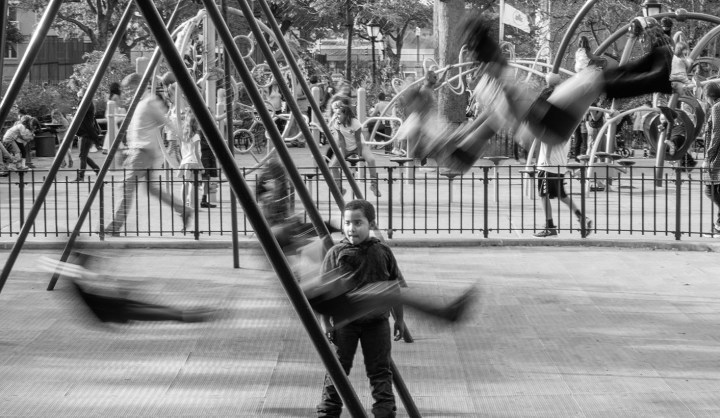South Africa
Op-Ed: Left Behind – The Realisation of Children’s Rights Undercut by Violence

Excessive levels of violence against children are also worrying because a growing body of evidence suggests that boys who experience physical violence have an increased risk of perpetrating violence against their own children and intimate partners later in life. In other words, violence against children perpetuates an intergenerational cycle of violence. By STEFANIE RÖHRS.
This week South Africans celebrated Human Rights Day. While there have been many achievements in terms of realising human rights since the end of apartheid, for many children human rights remain a distant reality because their rights are infringed on a daily basis. Even though our Bill of Rights includes the right to be free from all forms of violence from both public and private sources and, specifically for children, the right to be protected from maltreatment, neglect, abuse and degradation, many children experience violence at the hands of those who are meant to protect them —parents, caregivers, teachers, communities. And this violence is not a once-off event but a continuous thread throughout their life course.
The findings of the most recently published Birth to Twenty Plus (BT20+) study, led by Prof Linda Richter and her colleagues at Wits University, are even more distressing. The study followed more than 2,000 children in Johannesburg-Soweto from birth to 22 years of age collecting data on violence 14 times throughout the children’s lifetime. The BT20+ study found that during this period only 1% of the children had not been exposed to any form of violence! Ninety-nine percent had been exposed to direct or indirect (eg hearing gun shots) experiences of violence — both of which can have detrimental effects on children’s physical and mental health and cognitive development. Sixty percent of children in every age group reported direct experiences of violence. These excessive levels of violence against children are also worrying because a growing body of evidence suggests that boys who experience physical violence have an increased risk of perpetrating violence against their own children and intimate partners later in life. In other words, violence against children perpetuates an intergenerational cycle of violence. While the findings of the BT20+ are harrowing, violence against children is not unique to this particular region but is prevalent across our country. Previous studies in Mpumalanga, the Western Cape and Eastern Cape also report extremely high levels of violence against children by parents, caregivers and teachers and according to the first national prevalence study, 42% of children between 15 and 17 years old have experienced some form of maltreatment — physical, sexual or emotional violence or neglect — in their lifetime.
Many people will blame the government for failing children who have been abused, and to some extent they are right. The government has a constitutional duty to protect children from violence by public or private sources. This means Parliament has to enact laws that protect children from violence and government must put in place policies and programmes to prevent such violence from happening and to assist children who have experienced abuse. While South Africa has done well in terms of legislation, the implementation of these laws is found wanting. For instance, the Children’s Act envisions inter-sectoral implementation of the Act by all organs of state involved in the care, protection and well-being of children. But a Child Abuse Tracking Study by Lucy Jamieson and her colleagues at UCT’s Children’s Institute shows that social workers and police officers fail to collaborate in child protection matters leaving children at risk for further abuse. In addition to the lack of collaboration, some service providers fail to assist abused children. The Child Abuse Tracking Study gives many examples of systematic failures such as the case of a sexually abused four-year old that was reported to the police and social services. After the initial assessment of the child, social workers did not conduct any home visits or offer any support services to the child and her family. Such systemic failures can result in lifelong mental health problems both for the child and her family.
In addition to government workers, it is also parents, families and communities who have to look out for children and become active citizens who protect children’s rights. The Child Abuse Tracking Study shows that in many instances families protect perpetrators or deny the abuse and refuse to submit a report to child protection organisations. Such denial can destroy children’s lives. Neighbours are reluctant to intervene because child abuse—particularly physical child abuse — is seen as a ‘family matter’. How can violence against children be considered a private matter? This mind-set needs to change. Where fundamental human rights are violated, we as a society need to stand up particularly when the rights violation affects the most vulnerable members of our society. Only then will we truly start to realise children’s rights. DM
Stefanie Röhrs is a senior researcher at the Children’s Institute, University of Cape Town. Read more about the effects of violence on the well-being of children in the Children’s Institute’s 2017 Child Gauge
Photo: Andy Atzert via flickr

















 Become an Insider
Become an Insider